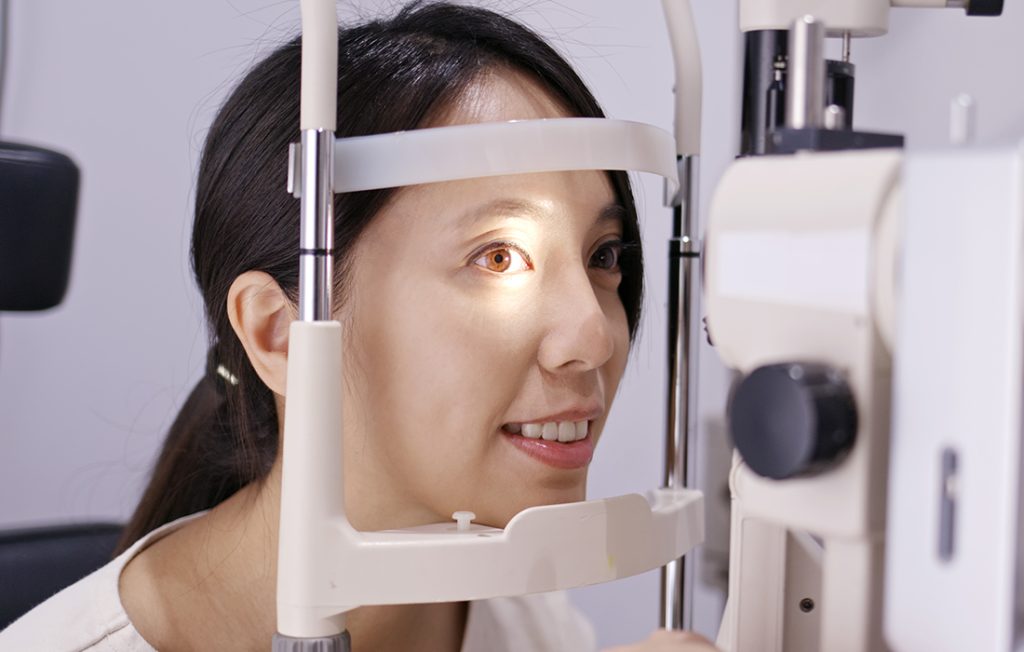Dr Philippa Kaye On Cataracts

Dr Philippa Kaye talks about cataracts – why they develop and how they are treated…
Maisie had worn glasses for years, she had been short sighted since a teenager and also started wearing varifocal lenses. Recently, her eyesight had deteriorated and she assumed she needed new glasses, but hadn’t got round to making an appointment with an optometrist when lockdown happened.
Maisie waited until they reopened then had a phone appointment with me as the optometrist told her they were concerned about cataracts.
What are cataracts?
Cataracts are generally related to increasing age (though other types exist) and is when the lens of the eye develops areas which become cloudy. Age related cataracts are common in the UK, with about 1 in 3 adults over the age of 65 affected.
Do cataracts always affect both eyes?
Cataracts can occur in one eye or both and it can take years for the cataracts and symptoms to develop. Doctors don’t always know why cataracts develop but having various conditions can increase your chances of developing cataracts, for example diabetes, high blood pressure or smoking.
What symptoms should we look out for?
You may have cataracts but have no symptoms at all, especially in early stages. Many people have their cataracts diagnosed during a routine eye check. Symptoms generally start with your vision being a bit blurry. Other symptoms can include seeing haloes around lights, such as car lights or lamp posts, or you may find lights such as car headlights become dazzling.
You may also have noticed that colours seem to be faded or less bright than before. Or you may find that your vision is not at good as usual in bright sunshine. Over time your vision may deteriorate further.
When your doctor or optometrist examines your eyes they can generally see the cataract. This is what happened with Maisie and her optician had given her a form to take to me as her GP so that she could be referred to an ophthalmologist (specialist eye doctor) to consider treatment options. The referral was made and Maisie is now waiting to see the ophthalmologist, though we were able to discuss what the treatment might be. This is likely to be surgery as there are currently no medical treatments for cataracts.
What happens during cataract surgery?
The surgery for cataracts is most often done as a day case as the procedure is short, lasting about a quarter of an hour. The surgeon will remove the cloudy lens and replace it with a plastic lens. You are generally awake during the procedure, but don’t worry you won’t be in pain! Local anaesthetic drops are given to numb the eye and occasionally an injection of local anaesthetic is also given. After the operation the surgeon may recommend that you wear an eye patch for a few hours.
Maisie wanted to know if she will still need to wear her glasses after the surgery. This depends on the type of lens inserted. Your own lens can change shape to focus vision, but a plastic lens cannot accommodate this in the same way, so you are likely to need to continue to wear glasses. However other lenses, like multifocal lenses can be inserted, but are less likely to be available on the NHS.
Maisie is going to keep me informed and of course the ophthalmologist will keep me up to date with her treatment.
Cataracts and driving
If your vision is severely affected it can affect your ability to drive a car, for example if the clouding is severe or the cataracts cause a significant glare from headlights at night. In order to be able to drive the DVLA set out requirements for eye sight – to be able to read a standard license plate from 20 metres away, and visual acuity be at least 6/12 with both eyes open. If you are not sure then please speak to your optician. If you do not meet the vision requirements then you are required by law to inform the DVLA.
Advice given in this article and on the My Weekly website and magazines is not meant to replace personalised medical advice from your doctor. If you have any health concerns please see your doctor.
Article written on October 22, 2020; article reviewed and updated on October 2, 2024.
Each week we’ll ask Dr Philippa Kaye to talk about a prominent health issue, so look out for more articles in our health and wellbeing section in coming weeks. Read her advice on Heart Attacks in Women, Ulcerative Colitis, Pre-diabetes, Skin Cancer, Allergies, Parkinson’s Disease, Shingles, Ovarian Cancer, Endometriosis, Long Covid and Ticks and Lyme Disease.







